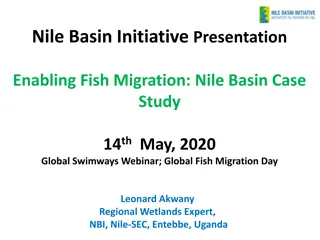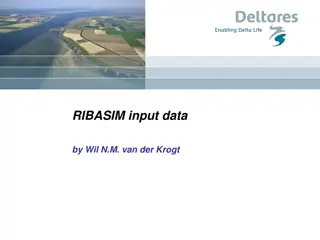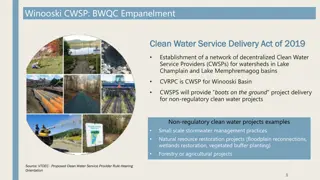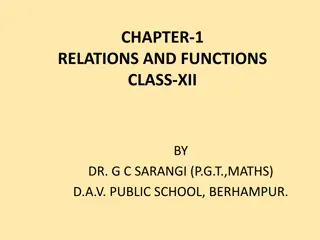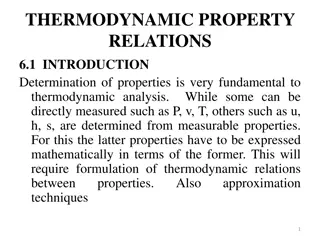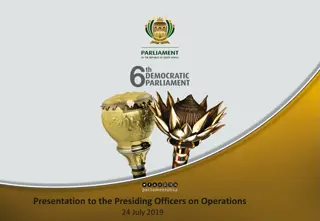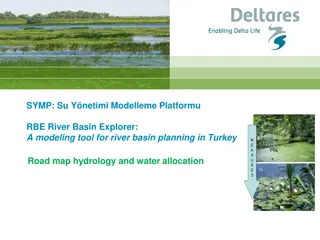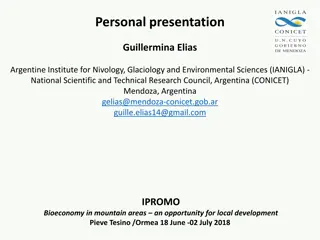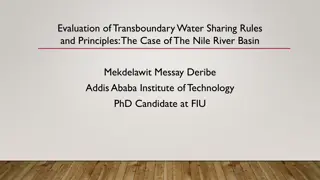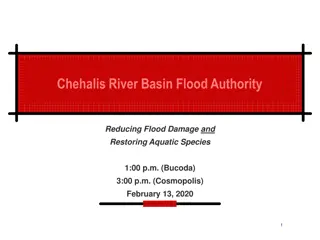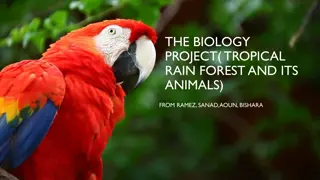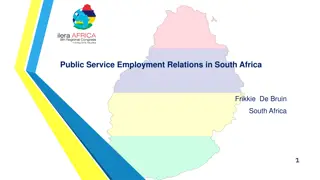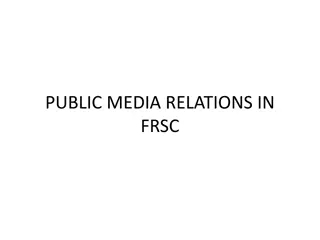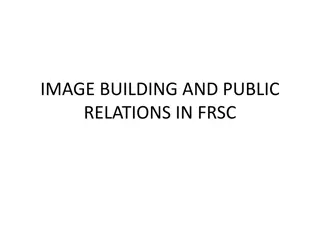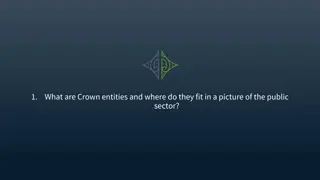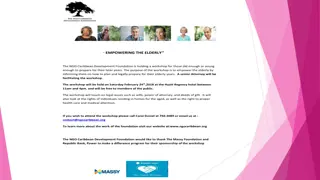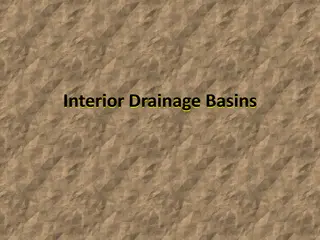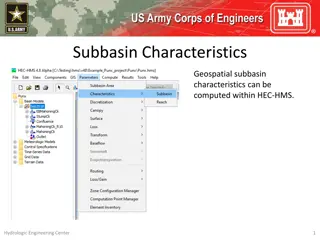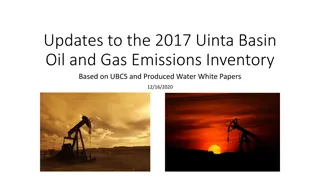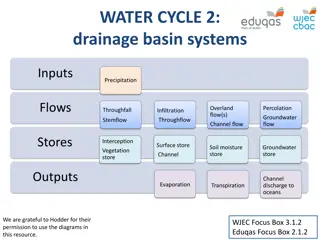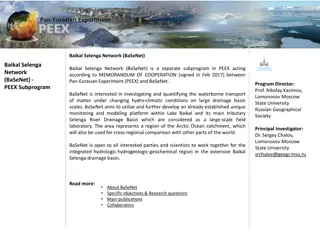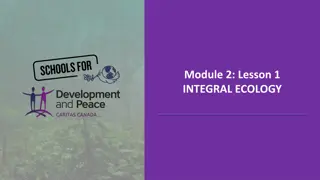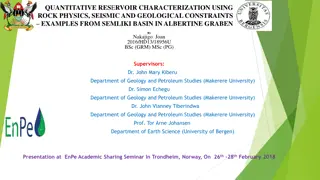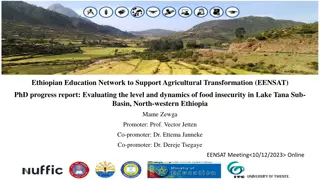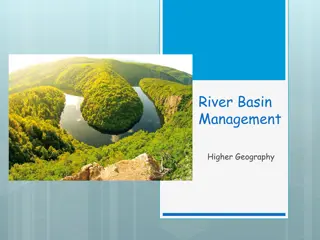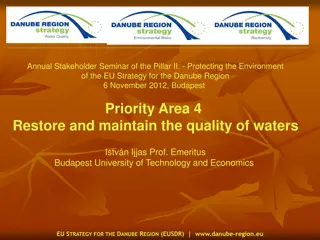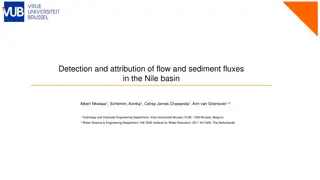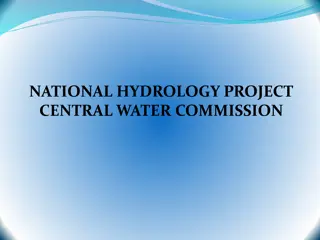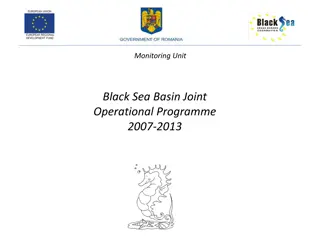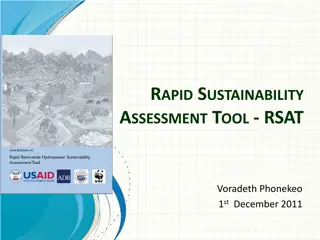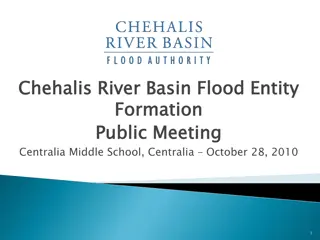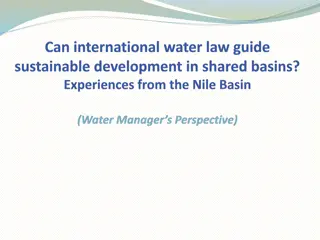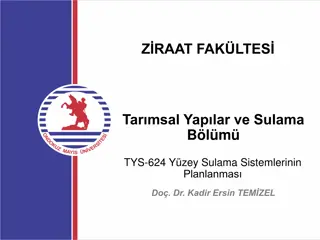Understanding NGO-State Relations in the Congo Basin
Dynamics of NGO-State relations in the Congo Basin, focusing on Independent Forest Monitors and their impact on governance. Examines the role of Civil Society Organizations (CSOs) in natural resource governance, highlighting contested relationships with the State. Explores the significance and challenges of NGO-State interactions for legal frameworks, funding, service provision, and policy-making in the region.
Download Presentation

Please find below an Image/Link to download the presentation.
The content on the website is provided AS IS for your information and personal use only. It may not be sold, licensed, or shared on other websites without obtaining consent from the author. Download presentation by click this link. If you encounter any issues during the download, it is possible that the publisher has removed the file from their server.
E N D
Presentation Transcript
1 The dynamics of the NGO (Non Governmental Organisation) State relations in the Congo Basin: the case of Independent Forest Monitors Respectful Dr Aurelian MBZIBAIN Teodyl NKUINTCHUA
Outline 2 Methodology Findings Discussion and Conclusion Background Theoretical framework
3 Background
From government control to multistakeholder governance Government systems have brought neither sustainable resource management nor justice for forest-dependent people (Bose et al., 2012) Public governance by itself is not sufficient to address collective action problems - need for governance systems that include non- state actors (Ostrom, 2003; Gutierrez and Morgan, 2017). A deeper understanding of factors that affect effective natural resource governance is necessary (Agrawal et al., 2008) Civil society organisations (CSOs) recognised as key actors in improving NR governance in Congo Basin (EU, 2015) Calls for scholarly research that challenge state centric theories of international NR governance - need to expand units of analysis to CSOs (Grant et al., 2013)
Civil society: needed and contested 5 Civil society, including Nongovernmental Organisations (NGOs), play a critical role in the debate for improved governance in the area of natural resources management in Africa local to continental; Seek to achieve influence through interactions with a wide range of key stakeholders, and most notably the State; Yet their role is often misunderstood and in many cases contested (Mbzibain and Ongolo forthcoming); State- civil society relations in the Congo Basin and many west African countries seem to be made of suspicion from both sides, disrespect and even exclusion; Civil society have historically achieved dramatic change in soft development initiatives revolving around people (Tvedt, 1998); Hulme and Edwards (1997) already expressed their concern that as NGOs are getting closer and closer to donors and states notably in terms of values and priorities, they are gradually losing their roots ; Yet some seem to be very successful in achieving their goals while others don t; Why is that?
NGO - State relations: unexhausted topic 6 Wide acknowledgement that NGO- State relations are not only important, but necessary at least for: Legal framework Funding Service-provision Capacity-building Policy and decision making (Bratton, 1987; Clark, 1991; Mercer, 2002; Charnovitz, 1997; Asad and Kay, 2014; Bratton, 1987; Garrison, 2000) Two gaps: Most of the research has been carried with purely development or health NGOs: tangible service-providers Very little attention has been paid to the Congo Basin, especially in a comparatively approach
How NGO-state relations have been addressed in the past 1. Governance network theory Actors, interdependencies & Frames Interaction and complexity Institutional features Network management Source: Klijn and Koppenjan (2012)
Theoretical Framework 2. Young (1999) and Coston (1998)
Our Analytical Framework 9 Four-C Approach (Najam, 2000) NGO-State relations are grounded on endless tensions which, if ended would mean only that at least one of the two has ceased to be what it essentially is (Najam, 2000) Dissimilar STRATEGIES (Means) Complementarity Confrontation Cooperation Co-optation Interactions are driven by institutional choice Similar Dissimilar GOALS (Ends)
Methodology /Context (1) Poor forest governance: laws poorly enforced, corruption, illegal logging International markets as the main destination for timber Abundance of environmental NGOs, but poor capacities including to demand accounts to states Expansion of Independent Forest Monitoring (IFM) = Mostly NGOs
Methodology /approach tools (2) 11 Semi structured interviews and multi-stakeholder workshops Participatory observation Case studies Literature and archive review
Findings (1) 12 1. Actors involved in the interactions: NGOs rarely interact on their own: strong alliances are in place to lead on the interactions Specifically dedicated networks (FODER) Standalone networks (CIEDD and CAGDF) More informal alliances with key stakeholders (OGF and CJ) State is a complex web rather than a monolith Ministries of forest are usually the main entry point But other agencies could serve as intermediaries or end targets 2. Spaces of interactions Information-sharing, mainly from NGOs , but also from State Financial resources: mainly from NGOs Technical support: often through Agreements, mainly from NGOs Actions against illegal logging: joint missions, mainly from the State, but also from NGOs Administrative support and legitimacy: mainly from the State
Findings (2) 13 3. Types of Interaction: Complementarity As a client, State may request or have to use services provided by NGOs As a service provider, NGOs need state s buy-in Working with government is like getting married: people come together despite of their difference because they understand that life may be better together
Findings (3) 14 3. Types of Interaction: Confrontation End goal compete with other goals: Communication is broken and mandate is threatened Main cause is response to illegal logging by the government personal and highly strategic interests from both sides Secondary cause: the influence of external actors both on government and NGOs
Findings (4) 15 3. Types of Interaction: Co-optation Strong role here is played by individual allies in interacting institutions Need to rely on all potential external allies, including other governmental agencies
Findings (5) 16 3. Types of Interaction: Cooperation Perfect marriage but not without suspicions: both institutions are concerned that the other may be cheating Best case: CIEDD (Central African Republic)
Findings (6) 17 Cameroon D.R. Congo Complementarity Confrontation Congo Central African Republic Cooperation Co-optation Gabon
Discussion and Implications 18 The endless balancing act Relationship Results
Discussion and Implications 19 Achieving the fine balance requests navigating through at least 6 factors: External players: Bilateral and international agreements, Donors, International NGOs, markets cite sources which agree or disagree Issues at stake at a precise moment: service-provision, campaigns, capacity-building, policy-reforms - cite sources which agree or disagree Formal agreement with the State: A mandate, or well-accepted official cordiality same as above Personal (informal) relationships: Existing allies within each institutions same as above Skills within the NGO: Strategically decide on the favourite type of interactions for the issues at stakes same as above NGO environment: isolated NGOs on sensitive issues or existence of networks as a shield/ democratic vs autocratic governments same as above
Next steps 20 Expand analysis from NGOs in capital cities to NGOs and community based organisations in rural areas Are national NGOs/community based organisations able to navigate these relationships? Accountability issues and how these affect role and effectiveness of NGOs as agents of change


